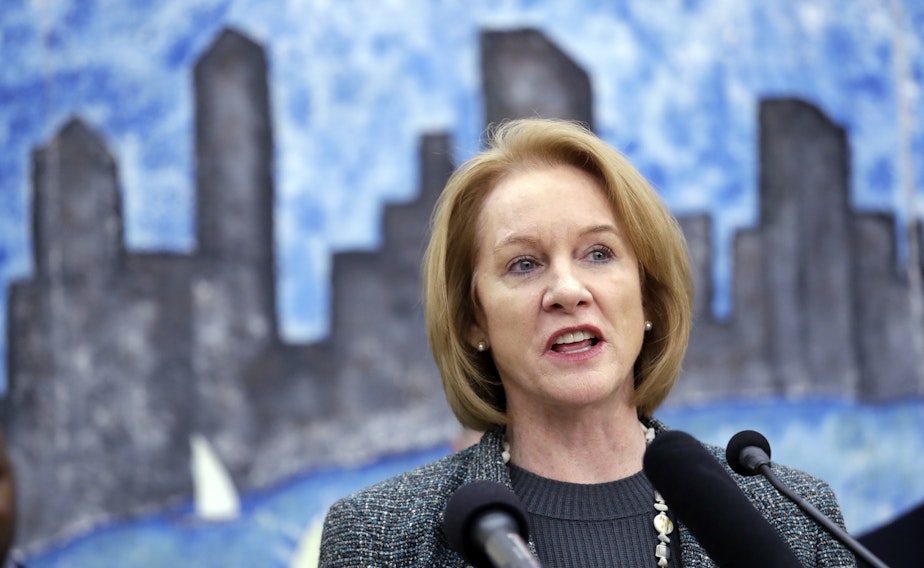'We need improvement' in federal response to COVID-19, Durkan stresses

Kim Malcolm speaks with Seattle Mayor Jenny Durkan about the city's response to the coronavirus outbreak, and the federal response so far.
Interview highlights have been lightly edited for clarity.
“I think there's a number of things that we need to see improvement on going forward, and I expressed those to the Vice President,” Durkan said, the day following Mike Pence's visit to Washington state.
“We need more testing and we need it as quickly as possible so that we can actually determine how widespread coronavirus is in our community.
Second, we're going to need economic relief. I'm very concerned about our small businesses, our workers in particular, our gig economy workers -- those workers who don't have the ability to work from home or might not have any vacation or sick leave -- they are going to be the ones that really shoulder the economic hit.”
On more Covid-19 testing
“[Federal officials] have assured the state Department of Health that there would be access to significantly more testing by this weekend and next week.
"We will see an uptick in the numbers of people who have this virus. That will not necessarily mean that it is spreading suddenly and quickly; it means that we are able to detect what is actually already in the community. And only if we have that information can we drive our response in the right way.”
On health outreach to homeless people
“We have a regular call with all of our service providers to make sure that they understand, number one, what the best public health information is, [and] what to be looking for in their own populations of people that are either living in their housing arrangements, if it's permanent supportive housing or in the shelters.
"We're also looking at trying to provide more sanitation systems throughout the city so that people can have access to that, to make sure that we're keeping people as safe as possible.
“There's no question about it that the people who are living unsheltered are some of our most vulnerable populations, both because of the proximity in which they live and because many of them have compromised health and immune systems. So we're particularly focused on how do we respond to those communities and what steps can we take to prevent the virus from getting there. And if it does, how do we respond?”


